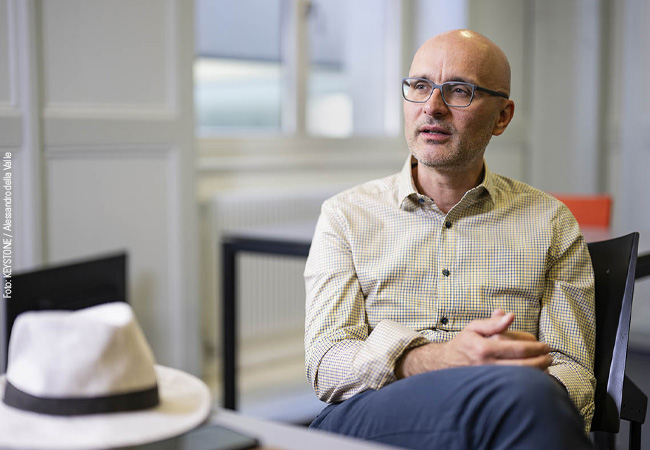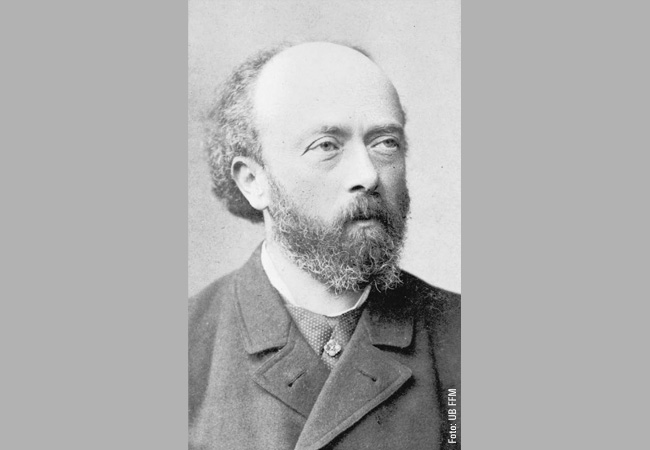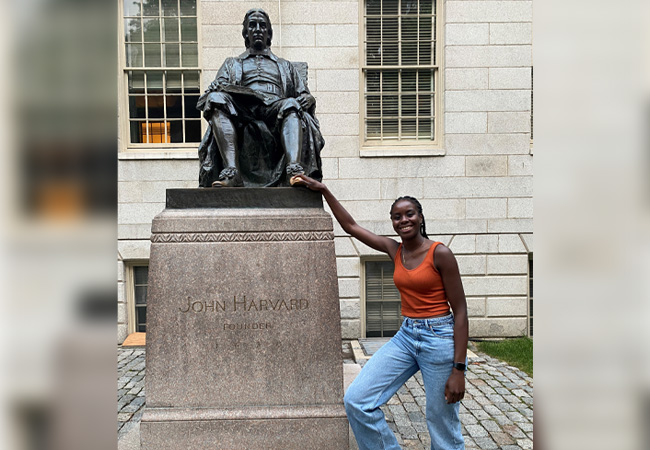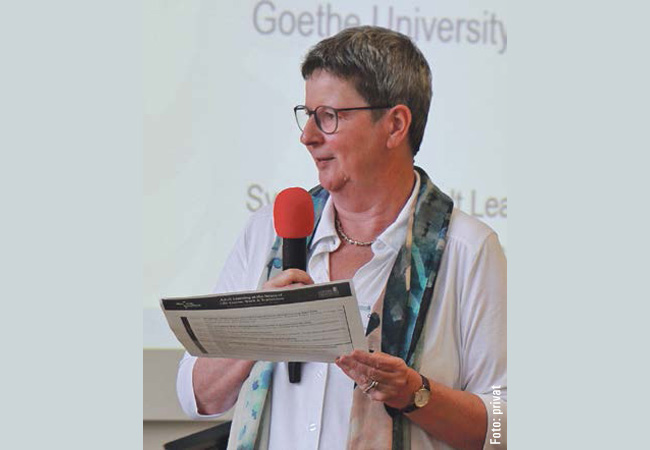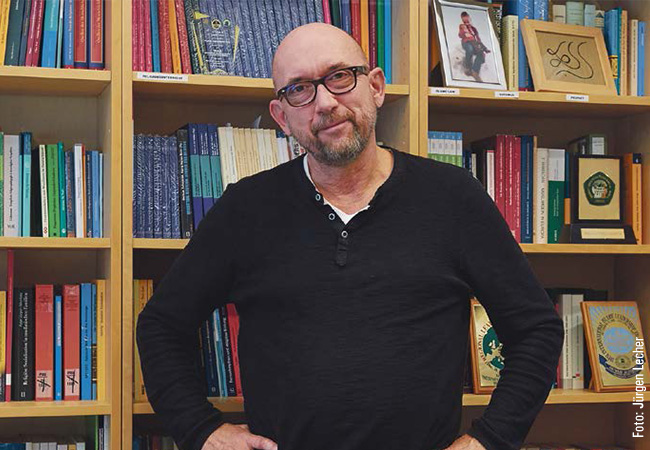Political scientist Nenad Stojanović is this winter semester’s Alfred Grosser visiting professor.
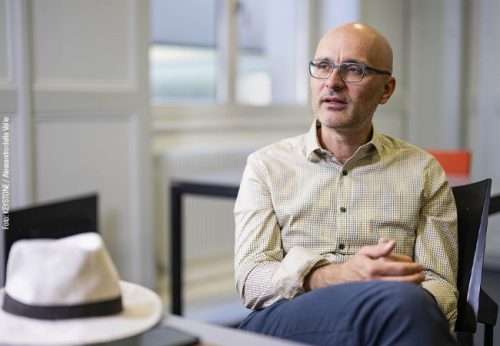
UniReport: Prof. Stojanović, the newly elected Argentinian president has already shown himself to be an enemy of democracy. Should we be afraid of such people?
Nenad Stojanović: Yes. When populist leaders, politicians or parties come to power thanks to the democratic institutions and freedoms we enjoy in our liberal societies, this does indeed constitute a challenge for – and in the worst case even a danger to –democracy. After all, they benefit, so to speak, from the fact that we have free elections and free media, that we can express ourselves freely, and so on. Once they have seized power, there is a danger that they will try to gradually undermine these various freedoms and rights.
Looking at Europe today, you can see this in Orbán’s policies in Hungary, for example: Since he first assumed power, Orbán has openly said that while Hungary is a democracy, it does not have to be a liberal democracy, adding that he could also envision a non-liberal democracy. There are only a few independent media outlets left in Hungary, and even research institutions such as the Central European University – one of the best universities in Central Eastern Europe – was banned following certain changes to the law.
In Germany, too, parts of the population sometimes have the impression that their concerns are not adequately considered in political opinion-forming processes. Populists like the new Argentinian president can very quickly make such concerns their own.
Populism does not necessarily have to be bad per se: It is often a sign that political institutions have failed certain parts of the population. People who are disappointed with traditional political parties and those who have governed will refrain from participating in elections. If they then discover a new party promising something completely different, it is understandable that they will place their hopes in it. It is the populists, after all, who manage to reintegrate these people into politics, and it is better for someone to participate in this way than to no longer participate at all. However, more often than not the promises made are broken, and populist politicians in particular, who are the first to rail against the ruling elites, are very often themselves involved in cases of corruption.
The question of how dangerous such politicians are is linked to the question of how strong the institutions within the system of checks and balances are to counter them. You could say that, despite everything that has happened in recent years, fortunately Trump was not able to do everything he wanted to do in the USA in the end.
Your home country Switzerland already practices many procedures of direct democracy. How would you describe the differences to Germany?
First of all, let me clarify that the term direct democracy refers to referendums and popular initiatives aimed at changing the constitution or opposing parliamentary decisions. Switzerland is the only country in the world where referendums are used not only this frequently – around 3 to 4 per year – but also at all three levels: communal, cantonal and national. In Germany, by contrast, referendums may not be held at the national but only at the state or municipal level, meaning that laws passed by the Bundestag cannot be challenged by referendum.
The second point that needs mentioning is Switzerland’s distinctive federalism and the autonomy of its cantons. Although Germany is also a federal state, its national government and its laws are more powerful than their Swiss counterparts. The third big difference, of course, is membership in the EU, something Switzerland does not have. As far as the aspect of populism is concerned, it is not easy to classify Switzerland in this respect: We do have parties that can be called populist, especially the Swiss People’s Party (SVP), which – in percentage terms – has been the strongest party in Switzerland for 20 years.
However, to name a fourth difference between our two countries, in Switzerland we are dealing with so-called concordance governments: Almost all executive bodies in Switzerland – whether at the communal, cantonal or national level – are made up of representatives of different parties. Unlike in the case of German coalition governments, however, there is no coalition agreement. The electoral system is designed in such a manner that, in the end, an executive body is formed that includes representatives of the most important parties, from the left to the right, meaning you don’t end up in a situation where you have to deal with a problematic populist party, whether from the radical right or left. The standard practice in countries like Germany, France and Belgium is to not form a party with such radical parties in the first place. Excluding parties from participating in the executive would not work in Switzerland, where the electoral system allows voters to elect members of the executive directly, at least at the communal and cantonal levels.
Your research also deals with citizens’ councils. Is this a uniquely Swiss phenomenon?
In fact, one could say that, compared to countries such as France, Belgium and the USA, we were rather late with regard to the “Demoscan” project. Germany also has a whole series of citizens’ councils. In this respect, a more apt way to put it would be that we in Switzerland copied other countries. From a very fundamental point of view, such citizens’ councils and the rediscovery of lottery procedures are one of the answers – and I would even argue the main answer – that has now prevailed in response to the crisis of representative democracy. Faced with the decline in voter turnout in representative democracies, traditional political parties have either imploded, as in France, or find themselves in serious difficulties, as in Germany and Italy, while new populist movements have emerged. Solutions are needed to escape the crisis.
On the one hand, there are those who say we need less democracy but better decisions. Another means of responding to the crisis of representative democracy is to dare even more democracy. This can mean several things, but one idea that has crystallized is that of citizens’ councils, as a means of better integrating broader sections of the population into political life in a different way, using a lottery system. In a lottery procedure, everyone is truly equal, everyone has exactly the same chance of being drawn. The citizens’ councils are not simply like a parliament. The aim is to determine who has the best arguments by means of deliberation, discussion and the exchange of arguments. Experience has shown that citizens’ councils’ members are actually prepared to change their own positions if they are convinced of the better argument.
What does the Swiss “Demoscan” project entail?
“Demoscan” is one of the various models of citizens’ councils, in which the citizens’ councils are linked to the referendums. The citizens selected by lottery discuss the topic of the referendum, which is put to the vote around two months later, and they write a report on its advantages and disadvantages. This report, which we call a citizen’s letter, is then sent to all eligible voters in the respective city or canton, not least because it is often difficult for voters to immediately understand complex issues in referendums since the official voting booklets are often too complex.
Is it fair to say that this really has a positive effect on democracy and citizen participation?
Generally speaking, these citizens’ councils are very positive for the development of democracy, albeit as a supplement, and not as a replacement for existing institutions of representative democracy. There is a research center in Frankfurt, headed by Brigitte Geißel, which has done a lot of research into such democratic innovations. Of course, one must take care to ensure that citizens’ councils do not mutate into an alibi exercise for the government. In France, for instance, President Macron once convened a kind of climate citizens’ council, which in the end only served the purpose of taking pressure off the streets. This is why it would of course be good to institutionalize such citizens’ councils: it would then be clear that they are not simply experiments being carried out.
Your public lecture is entitled: “Direct democracy against populism?” Can you already tell us how you intend to answer that question?
The main message of my lecture is that we should appreciate direct democracy as a democratic instrument and as something that promotes populists, which is the main criticism leveled against referendums and often voiced in Germany, France and Belgium. I will instead try to develop a counter-thesis. Depending on how it is designed, direct democracy can in fact have a curbing effect on populism. Why? Because it is much easier for a populist in a country that does not have referendums to claim that he or she is speaking on behalf of the people – something which becomes all the more difficult to do if popular support is lacking.
It is also important for direct democracy that these checks and balances are in place – which is actually the reason why we talk about liberal democracies in the first place. After all, democracy does not simply mean that everyone has the right to vote and the majority decides. That would be tantamount to the tyranny of the majority. What is important, however, is that certain rights are protected by the constitution, including from a possible democratic majority decision. As such, the German constitution contains so-called perpetuity clauses, i.e. rights that should be protected forever.
Nenad Stojanović is a professor of political science at the Swiss National Science Foundation (SNSF) at the University of Geneva, an associated researcher at the Center for Democracy Aarau, and a private lecturer at the University of Lucerne. Delivered as part of the Grosser visiting professorship, his public lecture on “Direct Democracy against Populism?” will take place on Monday, January 29, 2024, at 7:00 p.m. on Goethe University Frankfurt’s Westend Campus, Casino, Room 1.801 (Renate von Metzler Hall).
More information about the Alfred Grosser Visiting Professorship in the Faculty of Social Sciences in cooperation with the Polytechnic Foundation of Frankfurt am Main is available here.
Questions: Dirk Frank


